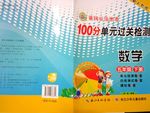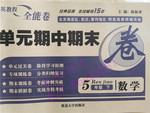题目内容
A new idea called “business at the speed of thought” is quite popular in our business world. It makes quick marketing progress, but it also presents a terribly dangerous way to run a company. Here’re the main points: The businesses today that will succeed are those able to jump around in high spirits. Chances must be seized immediately and decisions made quickly. Everyone needs more immediate answers, and the window of expected response to any questions has dropped from weeks to days even to hours.
The problem with this way of thinking is that too often such quickness comes at the expense of properly understanding the details of a situation. Sure, the networked society allows us to gather information within a short time, but does it really speed up our ability to make better decisions? How do you balance the need for speed with sharp and correct thinking? That’s the puzzler on the minds of a lot of people these days, including Future Shock author, Alvin Toffler, who studies the idea in our cover story. It’s also a subject of a new study by Kepner Tregoe. It reports that 77 percent of managers believe that during the past three years the number of decisions they made each workday has increased. But 85 percent of those same people say the time given to making those decisions has either decreased or stayed the same. Result: Speed kills. Different opinions are not shared. Other choices are dismissed too easily. Aims never seem to be clear. On the contrary, good records aren’t kept about how successful decisions are made. If your company really does well, the Kepner report suggests taking apart the decision-making process and figuring out what you did right. Study your successes, as well as your failures. Fast decision-making is a necessity sometimes-no question about that. But decisions are only as good as the brains that go into them. By that measure, many of today’s decisions are weak and could cut some companies off at the knees. Business may be keeping the quickness of thought, but it’s going to be torn to pieces if managers are not thinking with great care and patience.
1.The underlined word “window” in the first paragraph can be replaced by _________.
A.a period of time (during which an activity can or must take place)
B.means (of observing and learning about people)
C.opening (in the wall or roof of a building, car)
D.screen (on which a film is shown)
2.The Kepner report shows that _________.
A.managers should make efforts to pay attention to the weaknesses of fast decision-making
B.when mangers make a decision, they should make full use of their brains
C.if mangers don’t think quickly, business may be torn to bits
D.managers should make records of successful decisions
3.What is the author’s attitude towards quick decision-making?
A.Quick decision-making has proved of great help in marketing.
B.The fact of quick decision-making does business much good.
C.Quick decision-making makes some managers work harder.
D.The idea of quick decision-making has some disadvantages.
AA D

 智慧课堂密卷100分单元过关检测系列答案
智慧课堂密卷100分单元过关检测系列答案 单元期中期末卷系列答案
单元期中期末卷系列答案The meaning of the word “volunteer ” may be a little different in different countries, but it usually means “one who offers his or her services.” There are many different ways in which people can volunteer, such as taking care of sick people, working in homes for homeless children, and picking up garbage(垃圾) from beaches and parks. Volunteers may work within their own countries or in other countries. They are often people with a strong wish to help those who are less fortunate than themselves. Volunteers don’t expect any kind of pay.
At the root of volunteering is the idea that one person may have the ability to offer services that can help other people. Tracy, a good friend of mine, however, recently came back from India with a new idea of what being a volunteer means. She worked for two and a half weeks in one of Mother Teresa’s homes in Calcutta. The following is her story.
“I first heard about Mother Teresa in my high school, we watched a video(录像) about her work in India and all over the world. I was so moved by her spirit to help others and her endless love for every human being that after I graduated from high school, I too wanted to try her kind of work. So with two friends I flew to Calcutta for a few weeks.”
“I was asked to work in a home for sick people. I helped wash clothes and sheets, and pass out lunch. I also fed the people who were too weak to feed themselves and tried to cheer them up. I felt it was better to share with them than to think that I have helped them. To be honest, I don’t think I was helping very much. It was then that I realized that I had not really come to help, but to learn about and experience another culture(文化) that helped improve my own understanding of life and the world.”
【小题1】According to the text, a volunteer refers to a person who ______.
| A.is willing to help those in need without pay |
| B.can afford to travel to different places |
| C.has a strong wish to be successful |
| D.has made a big fortune in life |
| A.after she met Mother Teresa | B.after she finished high school |
| C.when she was touring Calcutta | D.when she was working in a hospital |
| A.She liked to work with Mother Teresa. |
| B.She had already had some experience. |
| C.She was asked by Mother Teresa’s example. |
| D.She wanted to follow Mother Teresa’s example. |
| A.Going abroad to help the sick. |
| B.Working in Mother Teresa’s home. |
| C.Doing simple things to help the poor. |
| D.Improving oneself through helping others. |